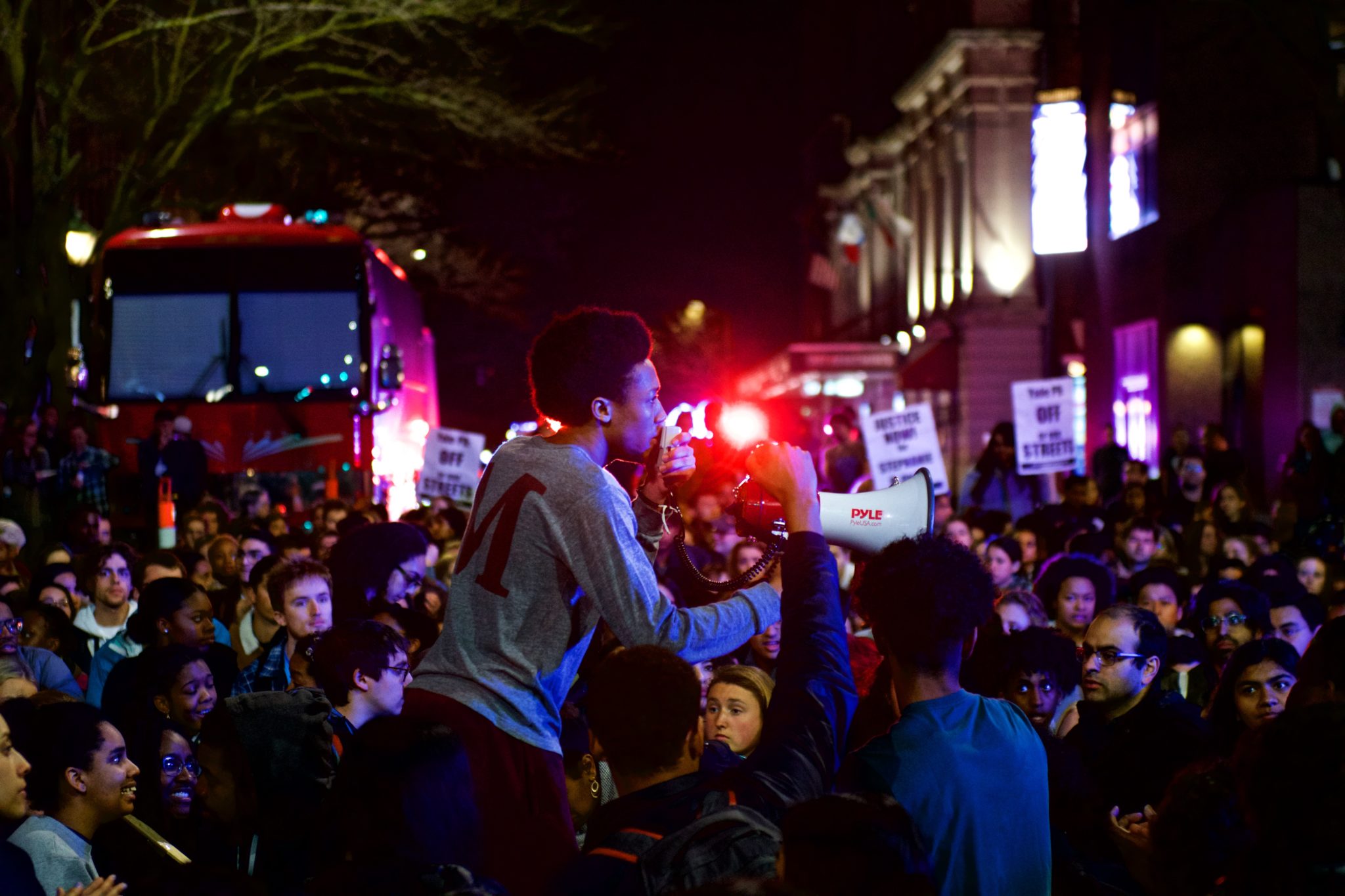
David Zheng
At the end of a University administrative review, Yale police officer Terrance Pollock has been reassigned to a position that does not require a gun or a uniform after shooting at two unarmed New Haven residents in April.
Pollock has remained on administrative leave since April, pending the outcome of Yale’s investigation. He will be suspended for 30 days without pay, and will return to the police department in an administrative capacity after that. Pollock’s behaviour during his 17 years with the YPD, Yale’s policies and procedures and the State’s Attorney’s investigation were all considered in his ultimate reassignment, according to a University statement to the Yale community on Friday.
“I believe that we have reached a fair decision — one that addresses concerns about safety while allowing us to continue to benefit from the valuable contributions of a long-serving police officer who has much to offer in a new role,” said Janet Lindner, University Vice President for Human Resources and Administration. “And more broadly, Chief Higgins and I are working closely with our Yale police officers to ensure that we emerge as a more effective police department as a result of this self-study.”
While they were “encouraged” by the YPD taking disciplinary action against Pollock, members of Black Students for Disarmament at Yale — a group formed in the wake of the April shooting — wrote in a statement on Monday that they were disappointed that the result had required ongoing pressure from activists.
The group reiterated a list of ongoing demands, including defined police districts and the disarmament of all YPD officers.
“The work towards disarmament does not end with one officer, and we will not allow this victory to make us think otherwise,” the group wrote on Monday. “Justice has not, and will not, be realized until these demands are met.”
The release of a report by State’s Attorney Patrick Griffin in October kicked off a series of protests about police accountability in Hamden and the Elm City — at the Broadway island in New Haven, in Hamden’s Town Hall, at Legislative Council meetings and outside Hamden Mayor Curt Leng’s home. Yale, New Haven and Hamden activists demanded the immediate termination of Pollock as well as Hamden police officer Devin Eaton, who also fired shots at Stephanie Washington and Paul Witherspoon.
In his report, Griffin charged Eaton with one count of assault and two counts of reckless endangerment. Last month, amid swelling protests, acting Hamden police chief John Cappiello recommended Eaton’s termination from the Hamden Police Department.
Pollock, who fired three of the 16 total shots, was not criminally charged. Griffin’s report described Pollock’s actions as “objectively reasonable, and therefore, justified.”
“This is a small consequence for Terrance Pollock for his outrage and rampage on two innocent [youths] Stephanie Washington and Paul Witherspoon,” Kerry Ellington, longtime local activist, wrote in a Facebook post on Saturday. “This community will not stop fighting until both officers are off the streets — never to police the streets of New Haven again.”
Griffin’s report determined that in April, Eaton was searching for a red Honda Civic following reports of an armed robbery at a Hamden Gas n’ Go station on April 16. Eaton located the vehicle, carrying unarmed Washington and Witherspoon, on Argyle Street near Dixwell Avenue. Video footage released later shows Witherspoon attempting to exit the vehicle and raise his hands when Eaton began firing at the vehicle. Pollock, who also responded to the call, shot towards the couple after his own vehicle was hit by stray bullets from Eaton’s fire. According to the report, Pollock perceived that Witherspoon was returning gunfire. One of Eaton’s shots hit Washington in the upper thigh, fracturing her pelvis and spine, while another grazed Pollock’s calf.
After the shooting, the University engaged 21CP Solutions — an independent organization that “helps law enforcement agencies and communities effectively tackle the challenges of policing in the 21st century,” according to its website — to conduct a review of Yale’s police practices.
“The review will give special attention to how the Yale Police Department can best ensure the safety of and respect for all members of the Yale and Greater New Haven community,” the University wrote in a statement on Friday.
Still, activists have claimed that the partnership with 21CP solutions is a public relations scheme and not an effective way of creating change in police practices. At a protest last month, organizer Jeannia Fu told the crowd it was a strategy for Yale to “create its own facts.” BSD has also added to its demands a request that Yale release the 21CP report to the public.
The Yale Police Department was established in 1894.
Meera Shoaib | meera.shoaib@yale.edu







